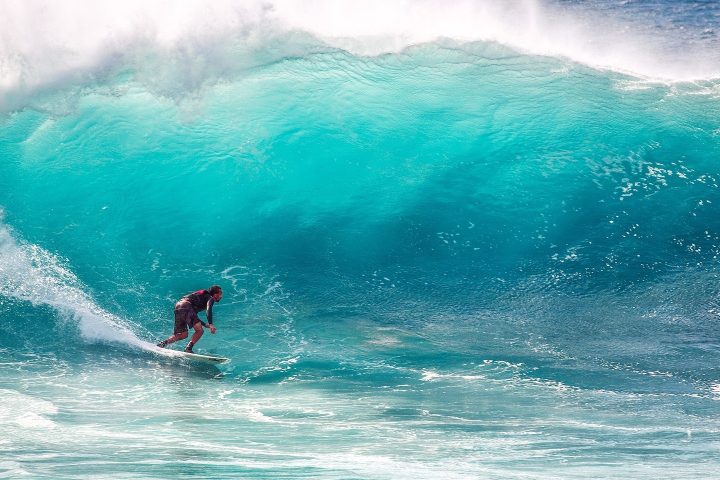by Jon Hill, Blueprint Coaching
 I am 90% certain that Russ Harris did not come all the way from Australia to England, and give up two days of his life just to be in a position where he could stand on a stage and instruct 150 well educated men and women to pretend to be zombies. But there he is and here we are: one hand pawing the air in front of us, the other flapping behind; all moaning with the infinite pain of the undead.
I am 90% certain that Russ Harris did not come all the way from Australia to England, and give up two days of his life just to be in a position where he could stand on a stage and instruct 150 well educated men and women to pretend to be zombies. But there he is and here we are: one hand pawing the air in front of us, the other flapping behind; all moaning with the infinite pain of the undead.
Nobody attending Russ’ Advanced ACT Workshop in London on 2nd and 3rd October this year expected anything less than a priceless opportunity to learn from one of the world’s leading experts in Acceptance and Commitment Therapy – what only a few of us knew to expect was what a fun and entertaining couple of days it would be. The ‘zombie exercise’ encapsulates Russ’ approach to training and therapy – light and enjoyable but with real substance. How many of us go through life, he asked us, like zombies – trying to claw the future towards us with one hand, push the past away with the other, utterly disengaged from the present moment? Over the course of two days we had plenty of opportunities not just to hone our skills as practitioners in helping our clients to contact the here and now in service of a valued life, but to practice on ourselves and each other.
Early on during Day One, Russ pulled out his tried-and-trusted Kelly Wilson impression, reminding us of the importance of seeing our client “as a sunset, not a maths problem”. The fundamental humanity of that statement and of ACT as an approach was a strong theme of the workshop, and every exercise and interaction between attendees bore its stamp. Each time the discussion threatened to stray into the realms of the heady or theoretical, the simplicity and compassion at the heart of the model drew us back towards the client and their lived experience.
One of the most valuable parts of the experience for a number of attendees I spoke to was the opportunity to be reminded of just how simple the ACT model is at its core. Many of us resonated with the common coach / therapist problems (talking and explaining ACT instead of doing it; being Mr Good Listener; Being Miss Grab-a-Tool) which Russ talked us through on the morning of the first day. The reminder that the ‘doing’ of ACT therapy is simply: 1) Developing psychological flexibility in the moment with the client, or; 2) working to get there by developing the therapeutic alliance seemed to lift a burden from the collected shoulders of those assembled. Just as powerful was the fantastic ‘off-track-on-track’ demo on Day Two, where Russ demonstrated how to simply retain focus in a situation where the client is – intentionally or otherwise – consistently derailing a session. By using the ‘resistance’ being shown in that moment by the client as the content of the therapy, he demonstrated how every moment in a session is an opportunity to reinforce defusion, acceptance, contact with the present moment, and committed action.
Day One included a number of other exercises aimed at helping therapists with ‘getting unstuck’ and overcoming behaviour that we experience as ‘resistant’. We also had an opportunity to experiment with case conceptualisation. As Russ acknowledged early on, very few people immediately throw themselves into the inviting waters of ACT – most people edge in a bit at a time: a toe, then a foot, maybe a whole leg. For those of us who are not yet full immersed, the habit of thinking about our clients from an ACT perspective is not yet fully embedded, and the opportunity to conceptualise different diagnoses and individuals using ACT principles was extremely valuable. A discussion and debate around the value of DSM diagnoses was also refreshing, again underlining the simplicity and humanity of the model. Russ talked about the risk of doing our clients a disservice by allowing a DSM diagnosis to distract us from their lived experience, and demonstrated how a simple formulation of the individual’s problem behaviour, its triggers and its payoffs can illuminate a clear and comprehensive course of ACT therapy.
Day Two began with a radical ACT-centric re-interpretation of ‘Finding Nemo’, with Russ illustrating the concepts of values-guided action and contact with the present moment via the actions of two cartoon fish: plucky Marlin ever-willing to accommodate dread and anxiety in his quest to find his son; dopey Dory plunging into the great unknown, her three-second memory span keeping her from speculating about the future or ruminating on the past – she just keeps swimming.
At lunchtime I spoke to Richard, a clinical psychologist from Harborne in Birmingham, who described himself as having “one leg” in the ACT pool. For him it was the Finding Nemo analogies and cannibal jokes that had played a crucial role in making the workshop a learning experience unlike any other he’d experienced before. “I’ve been to a few of Steve Hayes’ things and, while I really like him and he’s really engaging, he’s got a brain the size of Africa and half of what he says goes over my head. Russ is a bit more of an accessible speaker and that’s been really useful today.”
In the afternoon Russ introduced the new, somewhat expanded interpretation of ‘Self-as-Context’ and led us through a powerful exercise in urge-surfing. Again, I am pretty certain that he didn’t come all this way just to know that he had persuaded 150 people to stand silently, each with a Mentos Fruit Chew in their mouth, but that is indisputably what happened.
The day drew to a close with some beautiful work around compassion and forgiveness. It felt like the perfect way for the workshop to end – once more underlining the simple humanity of the model and sending us on our way feeling ready to step deeper into the waters of ACT.
This was the second time that Joe and Eric have hosted Russ, and there seems to be a good chance that he will return next year. Preparatory reading will be ACT Made Simple. Preparatory viewing will be Finding Nemo and Dawn of the Dead. See you there….







